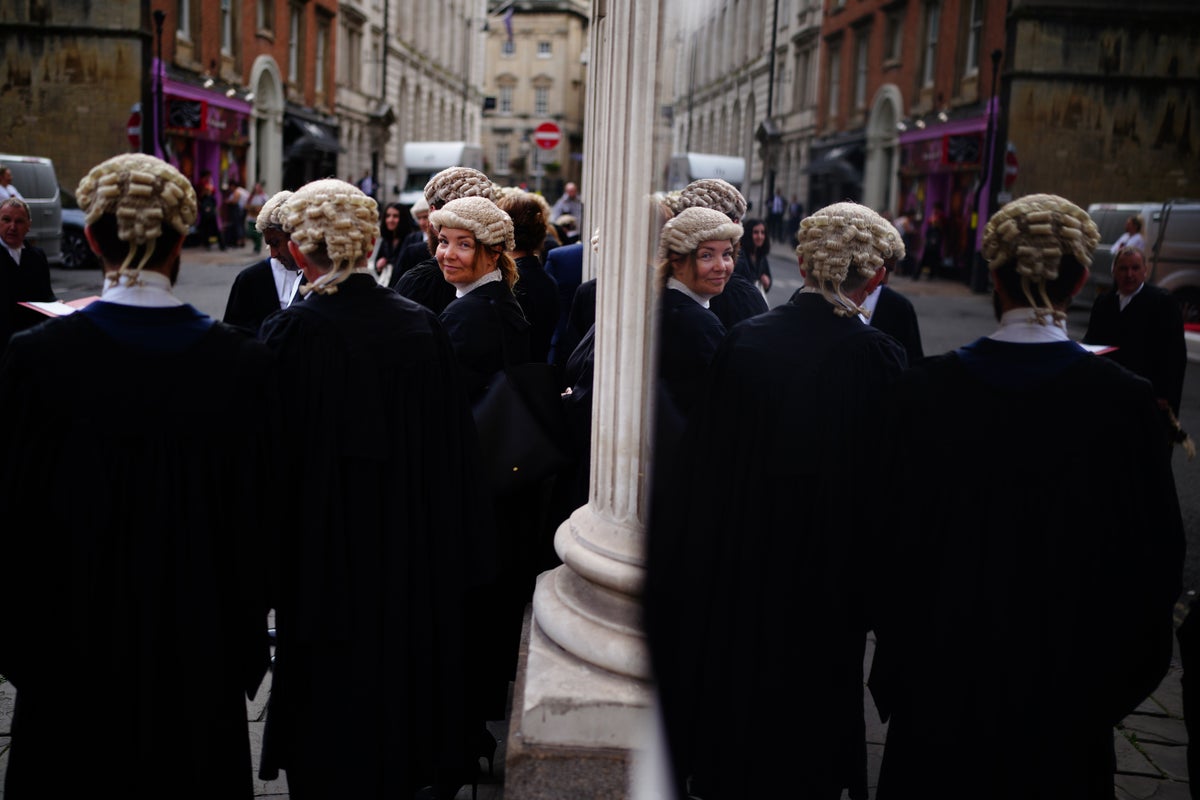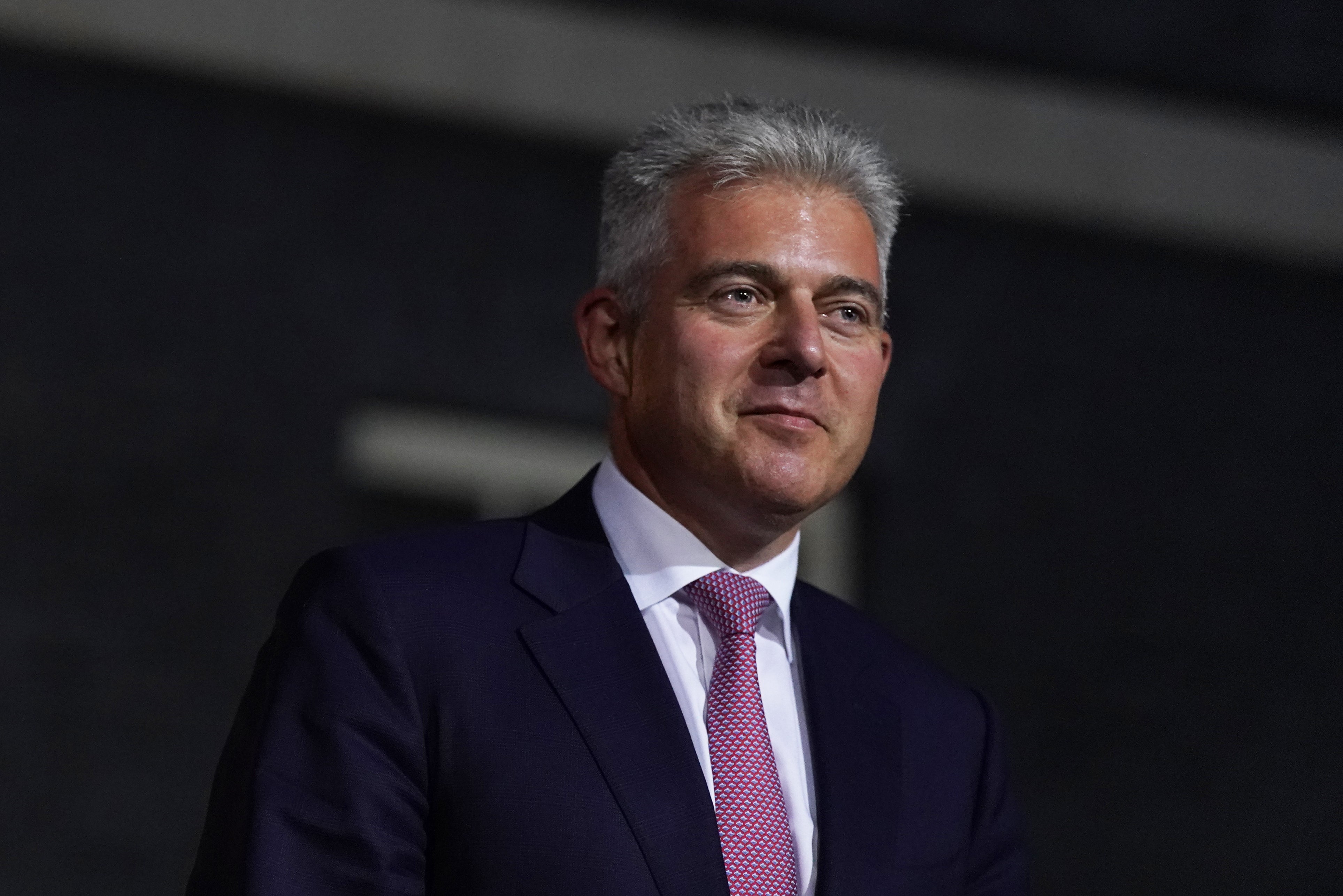
Striking barristers are “absolutely willing” to negotiate with the Government and would be ready to meet the new Justice Secretary Brandon Lewis as soon as Wednesday, MPs were told.
Members of the Criminal Bar Association (CBA) in England and Wales are taking part in a continuous walk-out after their row with the Government over pay intensified.
As industrial action continued for its 22nd week, CBA chairman Kirsty Brimelow told MPs on Tuesday the group is “absolutely willing to negotiate, have been all year, but there’s been no alternative (to taking action) because we’ve had absolutely no negotiation”.
Asked whether the CBA would be prepared to speak to Mr Lewis, if they were prepared to meet, Ms Brimelow responded: “Tomorrow.”
There may be situations where you have people on the streets you would rather not have on the streets. But that really, ultimately, is not going to be the responsibility of the criminal bar and criminal barristers. It certainly is government responsibility— Kirsty Brimelow
It came hours before Mr Raab became a high-profile casualty of new Prime Minister Liz Truss’s Cabinet reshuffle and was succeeded in the role by Mr Lewis.
Mr Raab had not met the CBA since members embarked on industrial action in April, but Ms Brimelow said the organisation asked “repeatedly” for meetings with him and was refused, although some took place with junior ministers and Ministry of Justice (MoJ) officials.
“There’s been nothing and we’ve been pushing for those meetings because none of the barristers actually want to not be in court. They are all suffering as well because they are self-employed; they are not earning any more. We have set up a hardship fund now for those barristers but many are making significant sacrifices”, she said.
Labour leader Sir Keir Starmer has previously accused the Government of doing “absolutely nothing” to resolve industrial disputes as it emerged Mr Raab was on holiday when the result of the ballot, which decided barristers would go on the all-out strike, was announced.
Earlier on Tuesday, barristers gathered outside courts in London, Birmingham, Cardiff, Manchester and Leeds.
In Bristol, around 40 to 50 barristers stood outside the crown court to support the action, with several making speeches.
Speaking to the Commons Justice Committee, Ms Brimelow said the situation was “not good for anyone” and “kind of heart breaking” to be in this position but “there’s no alternative”.
The action was “disrupting trials”, she said, with some stopped and other long-running cases suspended in the hope the matter will soon be resolved so months of hearings are not lost and juries are not discharged.
For long-running trials, Ms Brimelow said it is difficult to see how these would be re-listed before 2025 if they have to be abandoned.
According to MoJ figures, more than 6,000 court hearings have been disrupted as a result of the dispute over conditions and Government-set fees for legal aid advocacy work.
This week, the plea hearing for a security guard accused of spying for Russia from the British embassy in Berlin was put off due to the strike.
David Smith, 58, was due to enter pleas to nine charges under the Official Secrets Act dating back to May 2020 but the hearing was adjourned to October 4.

In Ipswich, the sentencing hearing for 35-year-old Rhys Burroughs – who admitted the manslaughter of a retired Felixstowe dock worker who he attacked while trying to rob – has been delayed as a result of the strike until October 3, according to the East Anglia Daily Times.
Clive Wyard, 74, was found collapsed on his driveway in 2018 and died 12 days later as a result of a severe head injury.
Ms Brimelow told the committee victims of crime are “suffering the most” and dismissed headlines in which Mr Raab accused barristers of holding justice “to ransom” as “absolute nonsense”, adding: “Victims are being held to ransom by not funding the justice system properly.”
She warned that, as the action continues, “increasingly” there would be defendants being let out on bail as their custody time limit expires, adding: “There may be situations where you have people on the streets you would rather not have on the streets.
“But that really, ultimately, is not going to be the responsibility of the criminal bar and criminal barristers. It certainly is government responsibility.”
Asked to what extent crown courts will be able to continue to function while the action is ongoing, Ms Brimelow said: “I don’t see it as functioning. It’s not functioning.”
Criminal barristers are due to receive a 15% fee rise from the end of September, meaning they will earn £7,000 more per year.
But there has been anger the proposed pay rise will not be made effective immediately and will only apply to new cases, not those already sitting in the backlog waiting to be dealt with by courts.
Ms Brimelow added: “It’s not just about money … but money is going to be a start. It’s always needed. And that’s the start – to get people back in the courts – but it’s not the end because the system also is really creaking.
“The reason the barristers are also all-out is to just shine a light on this system which we are all working in, which is not working, and is nearly collapsing. So there has to be those long-term reforms brought in urgently.”







